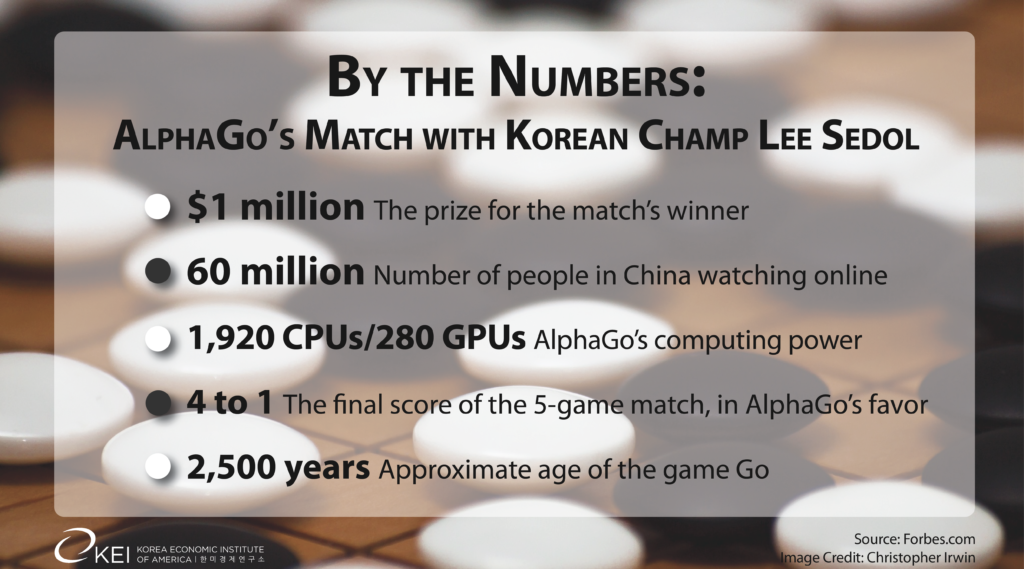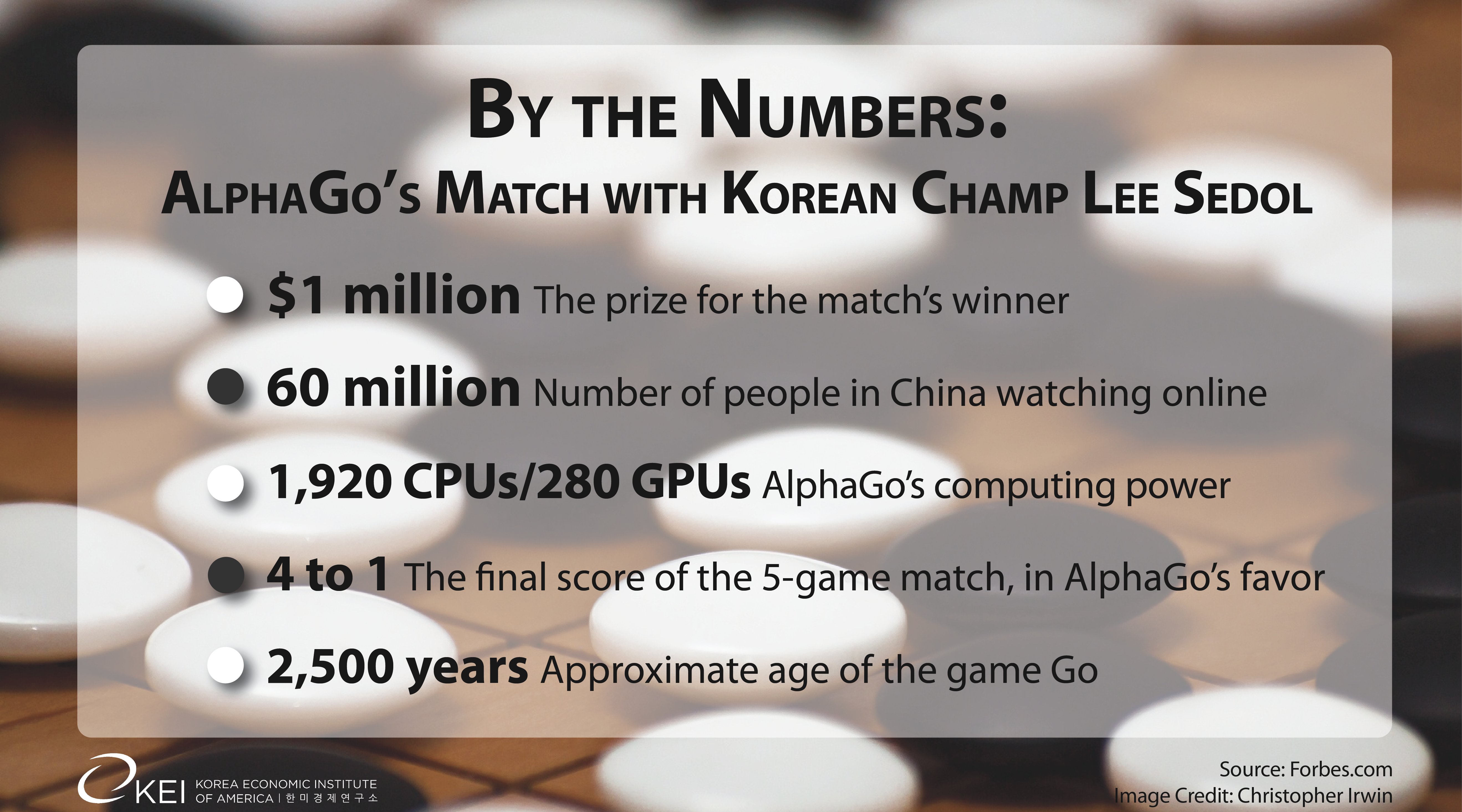The Peninsula
China, Korea, and the AI Program that Could Bring Them Together
Published June 12, 2017
Category: South Korea

By Nathaniel Curran
When Google’s AlphaGo computer program beat South Korea’s top Go (baduk) player Lee Sedol last March, it didn’t take long for AI experts to hail the event as a milestone in artificial intelligence and machine learning. Nor did it take long for China’s top player, Ke Jie, to issue his own challenge to the AlphaGo team, which culminated in a match two weeks ago. Ke’s claim was especially bold considering that Korea’s Lee had been handily defeated four games to one. In fact, it may have been a matter of national pride that prompted Ke to issue the challenge, considering that the game originated in China thousands of years ago.
With China and Korea both playing high-profile matches against AlphaGo this year, might now be the moment for a resurgence of Go diplomacy? Go is certainly enjoying an unprecedented degree of interest worldwide following the two AlphaGo matches, and China-Korea relations are in need of a boost after the last year of tension over THAAD.
Considering China and Korea’s shared appreciation for the game, as well as the massive press AlphaGo has received, might Go serve as a way of improving the currently frayed relations between China and Korea?
Go Diplomacy
This wouldn’t be the first time Go has been called upon to smooth relations; the game was used to help pave the way for the normalization of Sino-Japanese relations in 1972. Nor is mixing Go and politics unprecedented in the contemporary era, either; Barack Obama gave a Go set to China’s former President, Hu Jintao, on Obama’s first state visit to China.
Now, Go could present a new opportunity to strengthen the relationship between Korea and China. The relationship, currently under severe strain from the backlash against the THAAD deployment, is in quick need of repair, considering Korea’s reliance on China, its largest trading partner.
One reason that Go might be helpful in promoting better dialogue is that although the game is originally from China, it is something of an East Asian cultural bricolage, influenced by the innovations of both countries. The fact that both China and Korea have assisted in the game’s development increases its attractiveness as a tool of diplomacy in the region.
While few know the game outside of East Asia, millions play Go across China, Korea, and Japan, and each country has fostered a unique Go culture and playing style. During most of the 20th century, Japan was the undisputed global center of Go, drawing players from all over the world, including a few Westerners. But for the past thirty years, the top players have been from either China or Korea. More recently, in the 2000s, Chinese players have started to dominate the top ranks of the Go world, mirroring China’s rise on the international stage. However, Google chose to challenge Korea’s Lee Sedol in last year’s highly publicized $1,000,000 match rather than Ke Jie, or any of the other top Chinese players.
Although many associate Go with a vanishing cultural past, its continued popularity is evident; in South Korea there is a 24-hour television channel devoted to the game and Lee Sedol’s match with AlphaGo was front-page news in all the major South Korean newspapers. In China, 60 million internet users watched the match.
While it’s hard to envision the exact direction Go diplomacy make take, there are a number of possible avenues. China and Korea could work together to form a new, jointly-funded Go federation to promote the game at home and abroad. Simply holding some highly publicized friendship-matches between the two countries would be one way to use the game to increase diplomatic dialogue. Another possibility is AI vs. AI matches, which might also pay dividends to each country’s tech industry.
However, in spite of its potential to improve Sino-Korean relations, the game might hypothetically lead to further division. China must feel snubbed to some degree that Google originally challenged Lee, rather than Ke Jie. Some have even suggested that China’s support for the event was a reaction to the media coverage that the AlphaGo game received. It’s also possible that the countries might struggle over who holds a legitimate claim to the game, and also its narrative. China can make the case that Go originated in China, while Korea’s claim is bolstered by the fact it has received the lion’s share of the Western press’s recent infatuation with Go. Korea also has Lee, who notched one victory against AlphaGo along the way to his eventual 4-1 defeat. Considering that AlphaGo has continued to improve since last year, Lee’s one win probably marks the last time a human will ever manage to win a game against a top Go AI, and Koreans must feel some pride in Lee’s achievement.
Whatever happens next, it’s undeniable that Go has made something of a comeback; a rarity for a game with a twenty-five-century history. Whether the ancient game will serve to exacerbate tensions in East Asia or relieve them remains to be seen.
Nathaniel Curran is a PhD student at USC’s Annenberg School of Communication and a 2017 COMPASS Summer Fellow. The views expressed here are the author’s alone.
Photo from Prachatai’s photostream on flickr Creative Commons.

